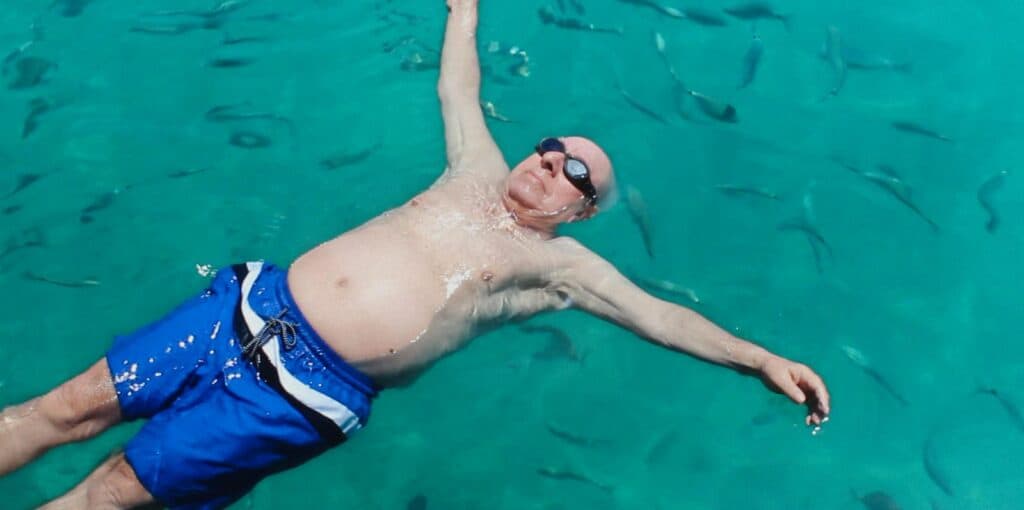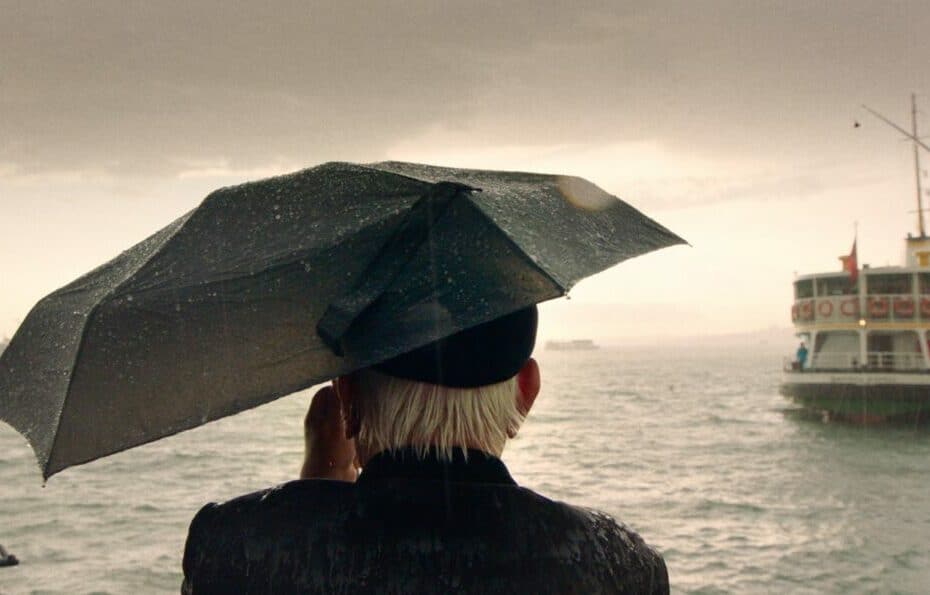Faruk is the latest film by Asli Özge and had its world premiere in the Panorama section of the 2024 Berlinale. The titular character is a nonagenarian living in Istanbul in a building bound to be demolished. Together with his neighbours, he tries to do something about it. We follow him attending meetings in an attempt to delay the process. He is the director’s father, and we see her documenting the proceedings but also directing Faruk and the other participants. Thus, we experience Asli directing a film in the film we are watching. It’s obviously not the first time we see a film where the line between fiction and reality begins to blur.
The film is shot in the locations where it takes place. When I interviewed the director, she told me that it was a mix of staged scenes and actual events, like a demolition. The initial idea for the project was to make a documentary about gentrification in the city. After a while, that idea was scrapped, and Asli decided to make a work of fiction instead. The project has been ongoing for seven years, but it was only during the last year that Asli, the director, decided to put “Asli” in the film and to show her giving directions. She said she wanted to play with the form more than she had done in her previous works.

The world, according to Faruk
It is a film full of comedic moments like the one in the teaser where Faruk takes a mental ability test and passes with flying colours. Afterwards, he proudly, but also playfully waves the certificate in front of the waiting patients. Another droll scene depicts Faruk watching a model show on television and envisioning one of the models walking naked in his hallway. He follows her, but the scene ends up unexpectedly. There are more poignant scenes as well. Even though the story is largely fictional, it could be read as a daughter’s love letter to her father. When I watched the film, I was sure his age was fiction, but Faruk was actually born in 1928.
It can be questioned how essential the meta aspect of the film is, but in several scenes, it lends a certain depth and a particular sense of humour to the film. Even though there is uncertainty about what is real or not, the film is still pretty straightforward and easy to follow. Faruk is a wonderful presence in the film, which would be worth seeing for him alone. In a work with considerable other qualities, it’s no surprise that it received the FIPRESCI prize in the Panorama section. It wouldn’t have been out of place in the competition, either. The film gets better the more you think about it.

